Danielle Amouzou-Akue – Winner (13-17)
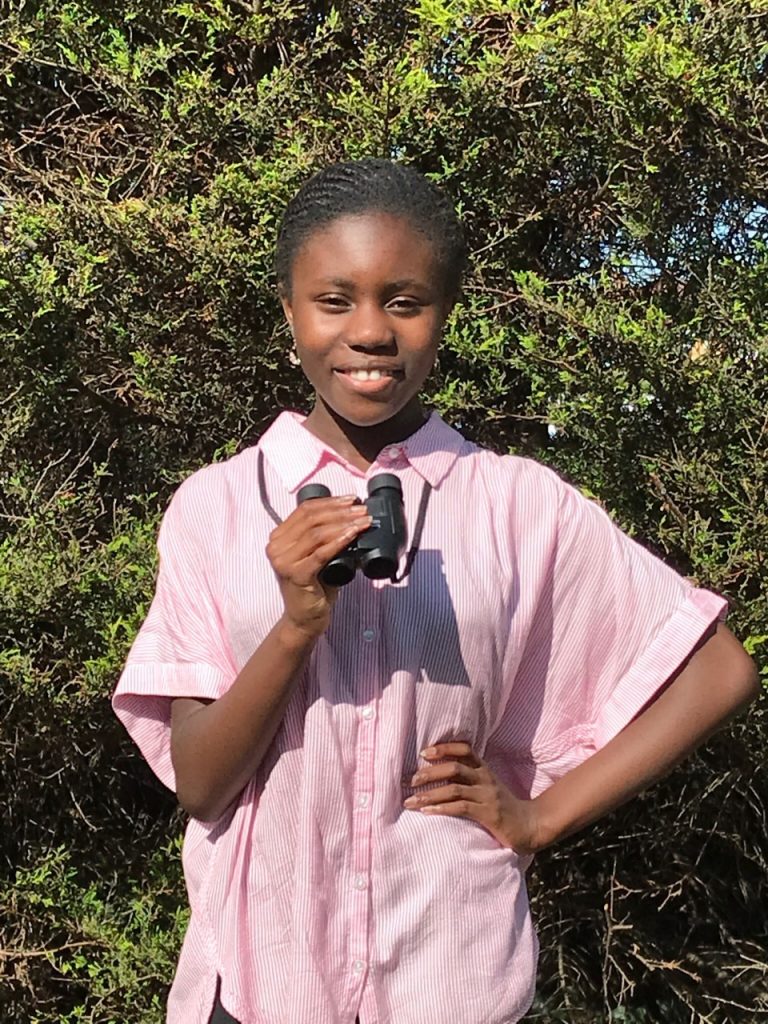
The lovely nightingale was flying home this year and yet he didn’t see as many planes as usual. No one was around. The towns and cities and even countries he saw were covered by a blanket of deathly silence. And he wondered- had humans really stopped? They didn’t usually go home. Didn’t migrate. Nor stop doing. Although some called them human beings, in his experience they rarely had time to be.
As he went further northwards closer and closer to home the same thing was true everywhere. He didn’t see the random acts of kindness or people grappling with video calls. He was too high in the sky. What he saw was the cleaner air and the other animals running free in cities. He saw the empty motorways and the empty streets and the empty shops. Not a soul, was bothering the trees. No-one cutting down them down to build on top of them. He saw a few people in uniforms (an army uniform he thought) but that was the only army he saw. Normally there would be a war somewhere and yet the only “army” he saw was peaceful. He came closer and closer to home thinking all the while until he saw his family and flew to join them warbling a happy tune. And all his other cares flew away on the breeze and the song of the nightingales forced out the earlier, eerie silence.
Dawn came the next day and the sun rose higher and higher like a monarch nearing the peak of her career. And through the day the sun reigned in her beautiful Crown with her rays making jewels of all they met. The fledglings her loyal subjects played in their playground beneath her benevolent gaze. Round and round the fallen fence carefree and happy, and there was no one there to scare them away.
And the Nightingale looked at them and then looked at the large nests of the humans.
He saw the sadness of the humans and happiness of the fledglings and saw that they were in direct contrast. The fledglings used to be wary and kept close to the nest and now it was the humans turn.
And yet even he, the most farsighted of nightingales, did not see the turmoil inside the hearts of so many innocent humans and even if he had he might not have understood why. He thought the humans should be happy to step off the treadmill they called life.The free and happy nightingale was blissfully ignorant of all those who had the opposite of his rest.
All those people who were very sad inside those nests that were so big yet hadn’t protected their heart from loss.
Outside the bird felt secure singing without danger, deep into dusk. The bird was at home. While idly perching on a branch he thought to himself:
Isn’t it funny that when humans are at home the birds are at their safest?
Anna Stone – Winner (7-12)
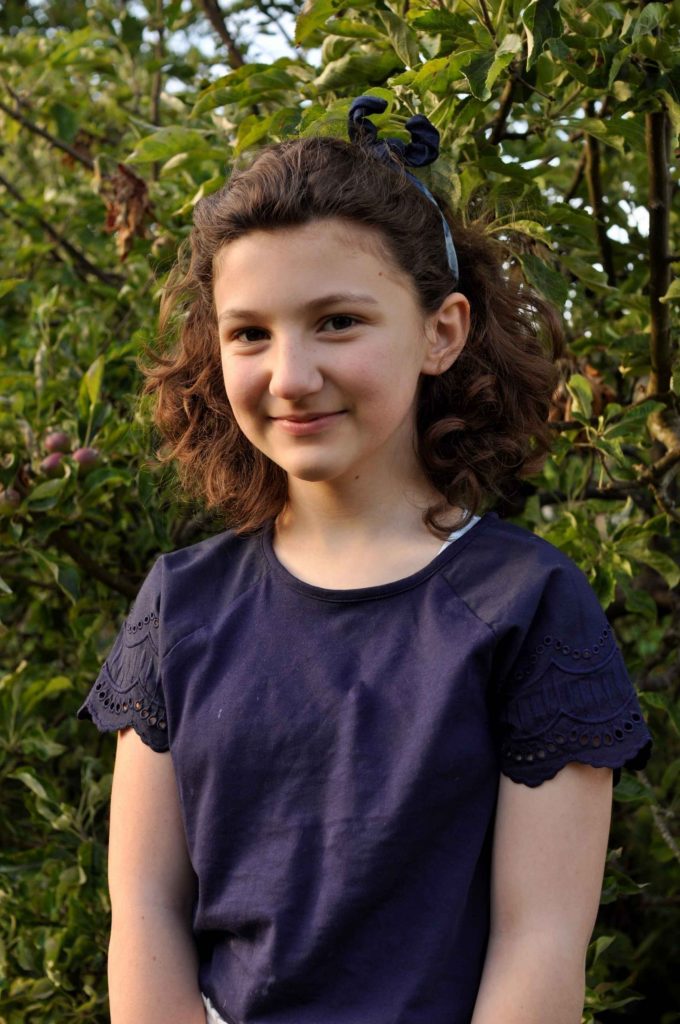
It was a sunny day. Perfect for hopscotch, skipping and, most importantly, gardening, which is exactly what Emily Swift was doing. She was down on her knees, digging and planting, digging and planting. Emily liked the repetition of it. If she was bored or unhappy, you would find her in the garden, listening to the bird song and running her hands over the soft bark of the apple tree. It would tell her of every single apple it had grown, describing how each one had been carefully crafted, green and red, and how it had been specially picked, ready for jam or crumble.
The tree itself was beautiful, blossoming at the moment, with big, pink flowers and soon it would be covered in green. The leaves swayed in the wind, just enough to make the goldfinches nesting in the it wobble gently. Emily wondered over too it. “Good Morning,” she whispered, “I have some bad news…”
The evening before, Emily had been sat down at the table. Her parents had The Faces on.
They gave her The Moving Speech.
They told her that her father’s job was important, that it was the main income, and to keep it running they had to move, it was there only option and they were sorry, and, and…
But the only thought in Emily’s mind was:
She would have to leave the apple tree.
Her apple tree.
When she told the tree it simply sighed and told her of an apple. The apple was small and green and quiet. Unlike its confident siblings, it hid itself away into the branches. When Picking Day rolled around, it did not want to go, begging the apple tree to let it stay. The apple tree told it that if it did not leave it would fall and rot, and if it did it would be enjoyed. It told the apple that it was not holding it back. The apple stayed in the branches, and, as the tree said, fell and rotted.
“You see?” the tree croaked, “If you refuse to leave, how will you blossom? You will rot away if you stay here.”
So, she made her way inside and climbed the stairs to bed.
Emily Swift was gardening in this house for the last time. Digging and planting, digging and planting.
Beside her, the apple tree swayed.
“Emily!”, it croaked, “I have a gift for you.”
Emily wandered over, and a knobby branch came out. On it was a brown paper parcel.
On the way to the New House, Emily opened the package. She smiled when a handful of brown apple seeds tumbled out. She did not have to leave the tree, she realised. In fact, she had it in her hands.
Benjamin Fallow – Winner (4-6)
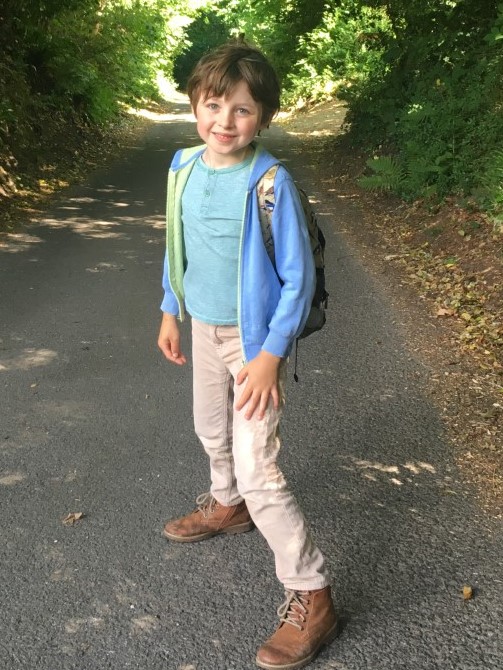
The first time I saw Flutter and Flims they were still in their eggs.
When they became chicks I found out that they weren’t just brought up by sparrows by other garden birds too! Robbins, blackbirds, blootits, agreat tit, doves, magpies, a crow and a pigeon all helped to raise them.
I next saw Flutter and Flims when I was on the swing and a flock of sparrows flew over my head and there they were!
While all the other sparrows kept to their places in the flock, Flutter and Flims were dancing about in the flock to welcome each other.
On my 5th birthday they came to see me again. And on my 5th Christmas they came again and hopped outside the kitchen window to see me.
When I was 6 I found out how to tork to them and I named them Flutter and Flims.
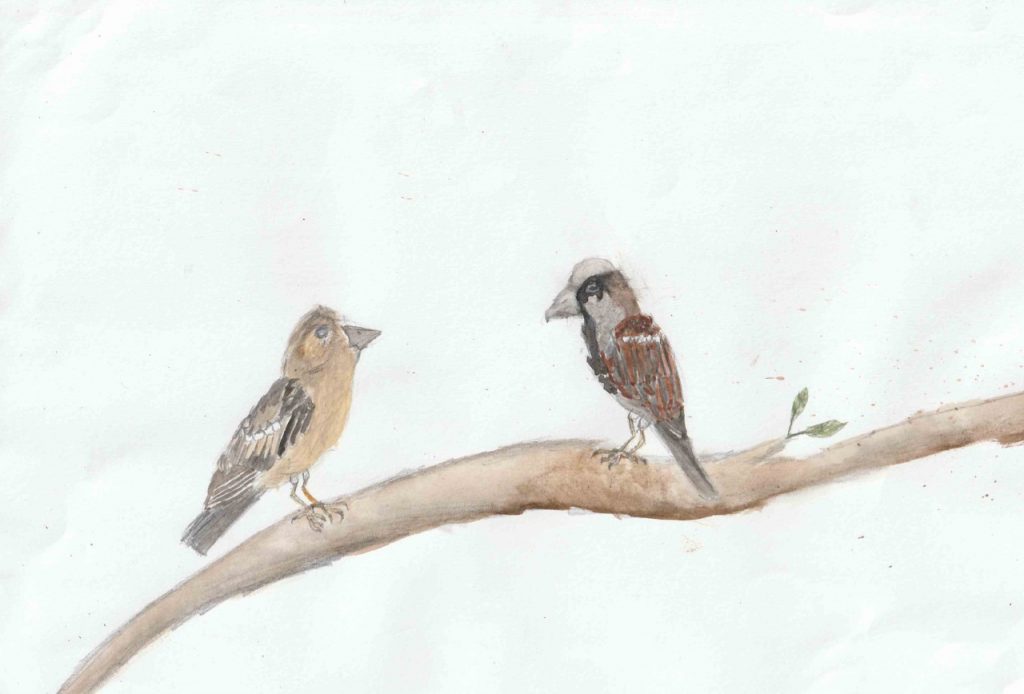
Daisy Oldfield – Runner Up (13-17)
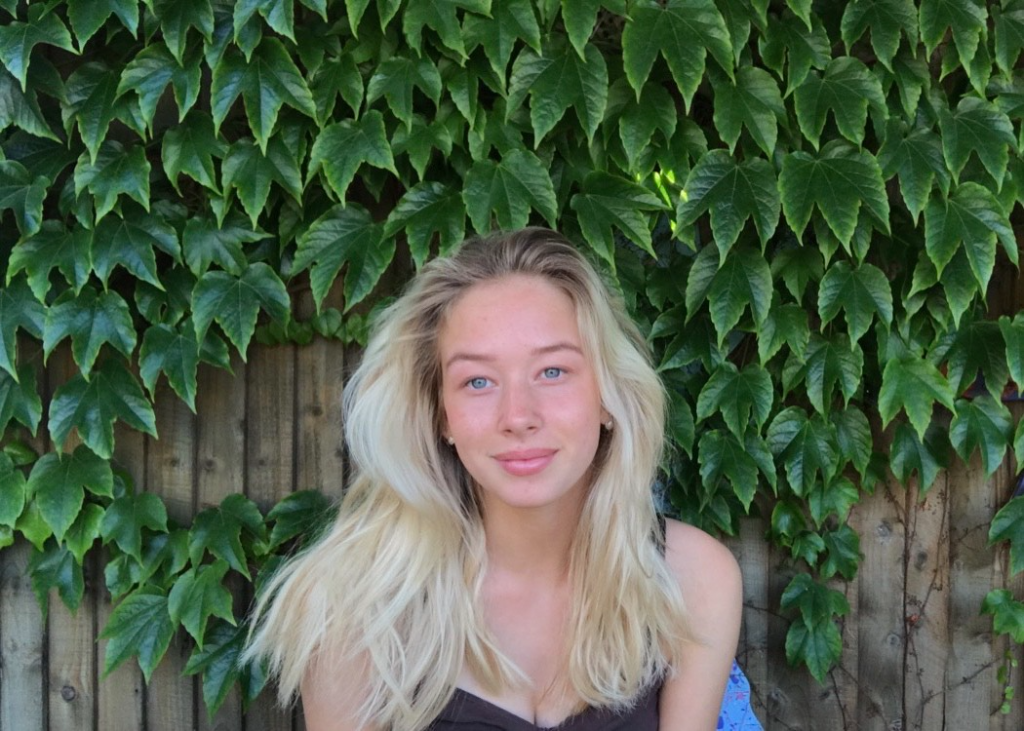
Not all life knows the construct of time, nor bears its weight when it is abundant; this blissful ignorance veils despair whist disabling beautiful minutia from being taken for granted or simply overlooked. The bee’s dance among the flowers oblivious to the loitering cold and the flowers stand ostentatious unbeknownst to the ever impending drought. They do not wilt early or take to premature hibernation in fear of what may be, and it is their stubborn salutation’s that make for an inimitable, everlasting felicity. In the most baron of places life still persists, be that a concrete playground or desert; the creatures and weeds endure and thrive amongst the desolation, their circumstance to the soaring bird may seem unfortunate, but to those who sleep among the soil, a simple utopia prevails. Beneath the flower pot there is a quiet colony in eternal twilight, enamoured with the darkness we dread, and in damp corners fester poisonous mountain ranges enticing the infantile inquisitive eye; a beauty not measured by shape nor colour but by how peculiar and different they are.
All animals walk barefoot upon the earth and the hardened skin makes temporary footprints, but it is our human sole that has downtrodden the grass to the point of no growth as we walk recklessly among the fields of flowers we are lent. Indifferent to nature as it so seems many of us are, we need only to walk barefoot across the sand and allow the ocean to caress our feet to remind us that our roots descend as deep into the soil as those of the great oak tree.
Let the seas consume you as you look up to the light bursting through the surface, allow yourself to remember that we are guests not landlords of this home and that these waters are not ours to bath in when we are dirty, and the soil is not ours to infest with the products of our greed. In an urban jungle many of us sit beside artificial plants made of the murderer of nature itself and disregard the idea that disposal does not mean our prior pleasures simply fall into an abyss for which we need not worry about the consequences.
We have not strayed too far from the dirt track, and come autumn we all remain in awe of the burning trees and falling embers, but in winter when the fire has died down and the skeleton of our previous idols are all that remain, we care not that our lungs are felled and ripped from the chest that feeds our species. In spring the brief blossom fascinates the curious, careful mind and come summer there is an emancipation of colour in every patch and pocket of land.
As we gaze out of the window at the budding leaves and modest grass, let us not forget that the fruits of this Earth feed not only us, and with growing stomachs we will soon exhaust our host causing all to suffer the consequences. May we enjoy the flowers without uprooting them and the magnificent animals without imprisoning them as we walk on this borrowed land.
Elsa Lazaro-Fitzgerald – Runner Up (7–12)
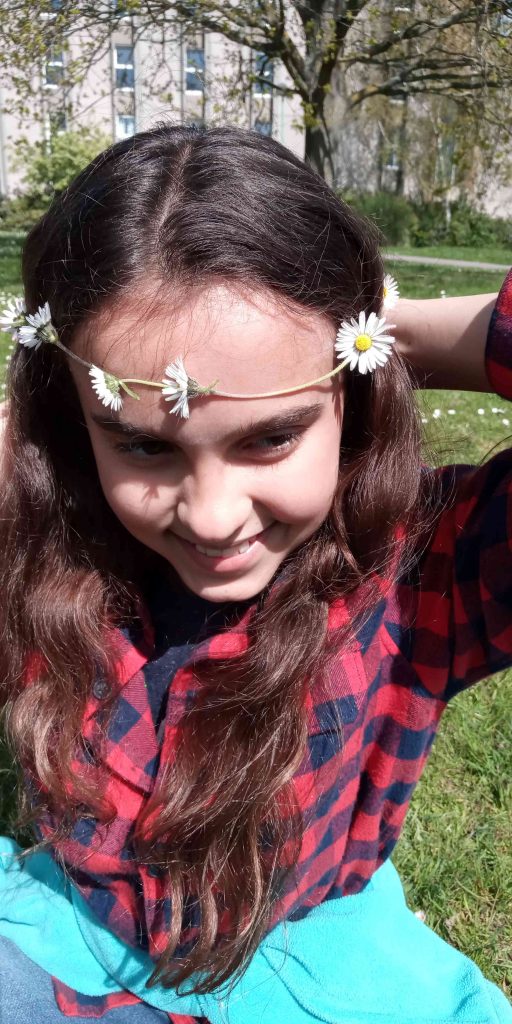
For five long dreamy years, they have been gathering colours from their earth bed. They push up through the rich soil, joining the other velvet-petalled bluebells, like a myriad of tiny fountains trickling a palette of sky blues across the forest floor.
We go up the hill to Bluebell Wood every year at spring. This year, I follow the twisting path again through the dangling silver birch and proud oak, up the climbing wood, weaving through gnarled giants’ legs and spindly witches’ fingers. Sunlight turns into shadow and humble bluebells huddle in small pools. A shine of adventure dances, soft, violet. The bluebells, the ancient keepers of the wood, stick together, just won’t tell. Who knows what they whisper?
Sometimes I’ve seen jaybirds here. l see a dash of blue and I wonder: is it? The bluebells make a kind of ancient moat all around a shaking troll bridge, which I tiptoe across. I find a tree with open arms and find a foothold, the others taken by snaking bramble and ivy. I heave myself up using the tree’s bumps and gnarls, ancient story folds, and I go up and up until I am sitting as high as I can. Here in my old tree castle I am flying, almost, perched and clinging to my bough. The wind catches the treetops and the leaves roar. And suddenly I am journeying, my castle a ship.
I look down from my crow’s nest and the vivid bluebells carry me away on on a blue wave. In the sea wind my explorer’s neck ruff barely stirs, stiffened with bluebell sap in days when it was not illegal to pick wild bluebells. I take out my telescope and find new worlds in the blue floor of my ocean, my castle, my wood. The wind drops and the forest floor looks like a tapestry. One bluebell picked is a thread pulled, a pull of threads an unravelling, until the forest floor is threadbare and the spell is broken.
Scarlett Serventi, Runner Up (4-6)
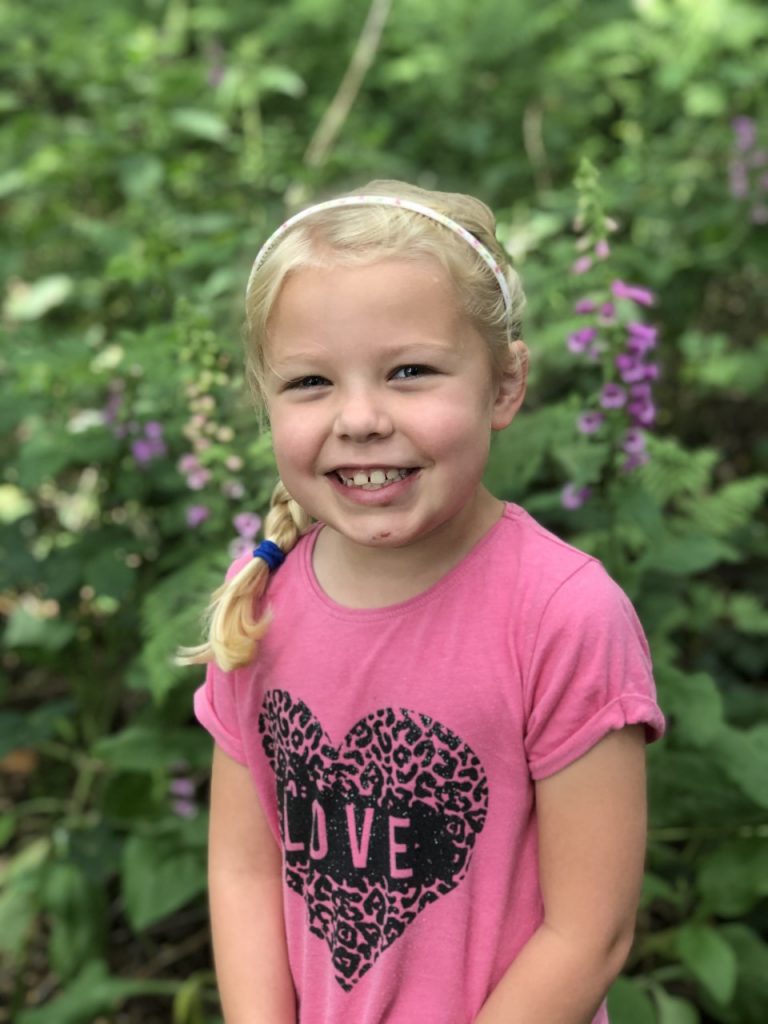
Max and Rosie were two fluffy sparrows. They looked for a tree to build their nest in.
They found a tree at number 11. That started to collect their sticks.
That night the wind blew and blew. The tree shook and it was not safe.
Mr Parsley decided the tree had to go. Max and Rosie heard the sound of a chainsaw. They quickly flew out of their nest and sat on the roof of the house.
The tree came down. Where were they going to live now?
They spent the day looking for the perfect tree.
Number 9 had a noisy dog.
Number 12 had a scary cat.
Number 8 had a boy kicking footballs at the fence.
Number 10 had the perfect tree. Max and Rosie moved in.
They built their nest with sticks and fluff from the dog at number 9. Rosie laid 3 eggs in the nice warm nest.
Max kept feeding Rosie with worms until the eggs finally hatched.
Out popped 3 fat, fluffy sparrow chicks called Robert, Lily and Ozzy.